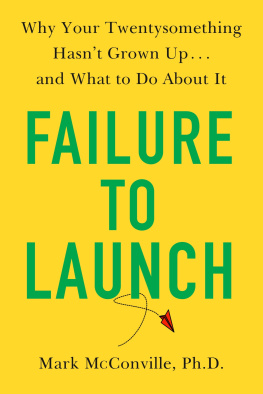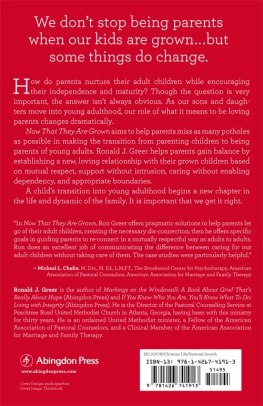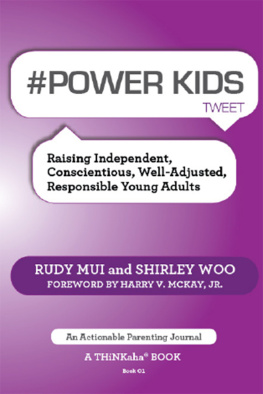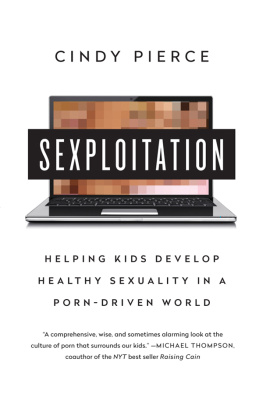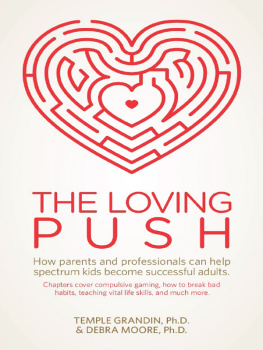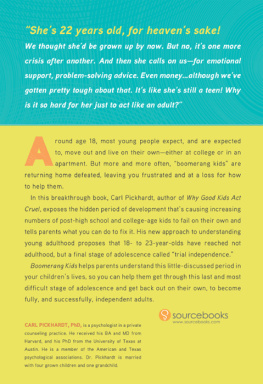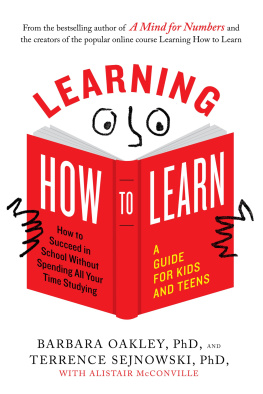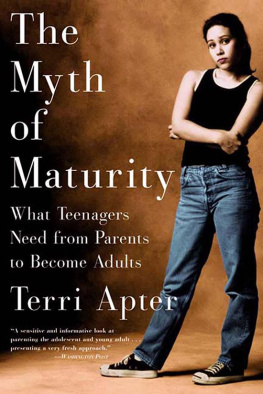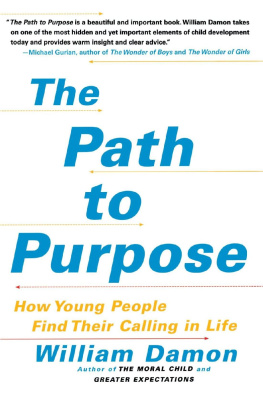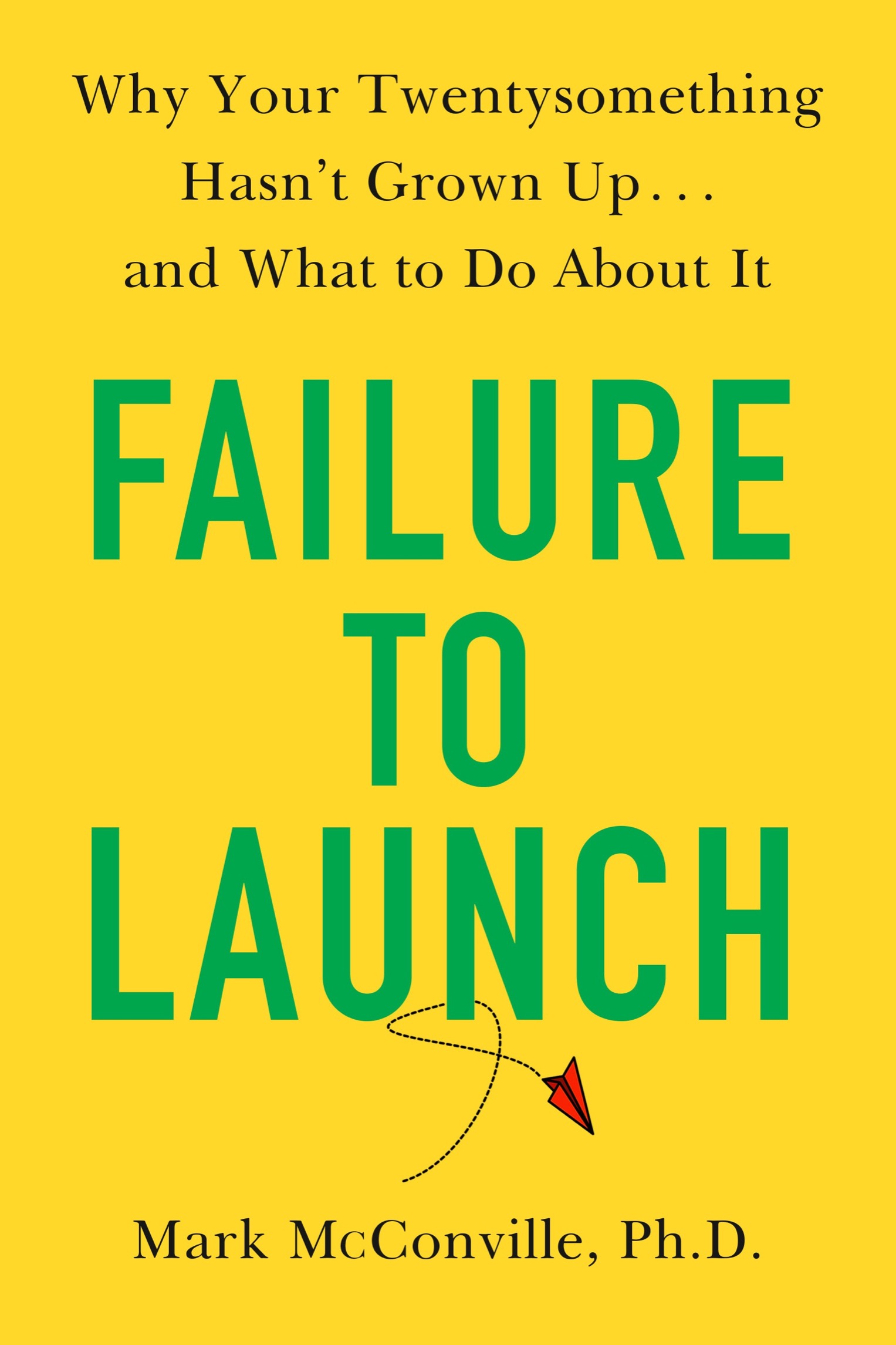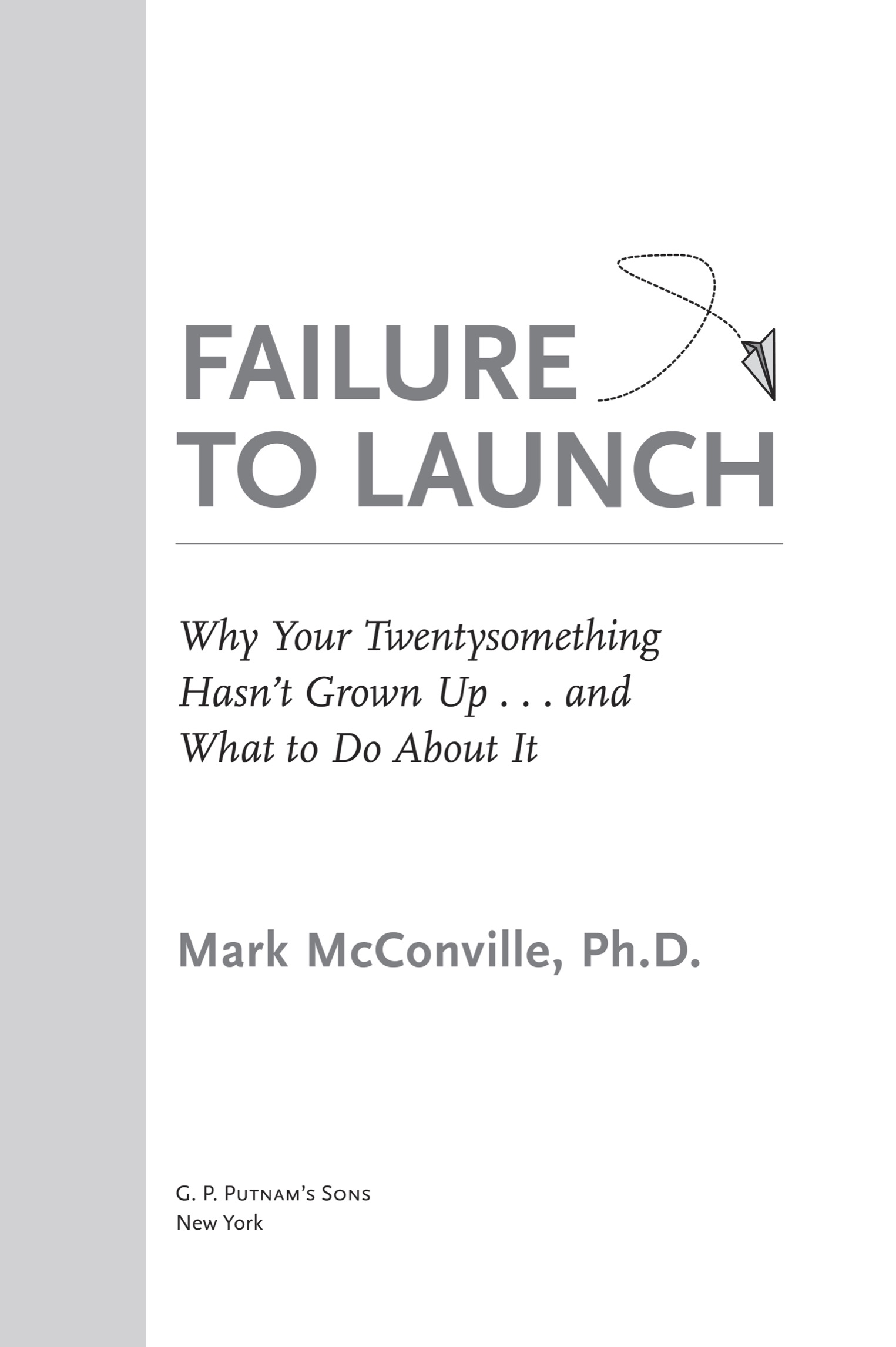P RAISE F OR
Failure to Launch
This book helps parents give kids something they desperately need but seems just beyond their reach: a future. Dr. McConville takes us inside the world of young people stuck in the transition from adolescent to young adult. He demonstrates that, in order for change to happen, parents must stop treating their twentysomething like the teenager they were, and parent them like the young adult they will become. Dr. McConville then provides a step-by-step guide full of practical, effective, and compassionate strategies. Failure to Launch offers a way off the proverbial basement couch and is a must-read for any parent whose offspring are having trouble leaving the nest.
Adam Price, Ph.D., author of Hes Not Lazy
Failure to Launch is a must-read and hopeful guide for the record numbers of parents whose boomerang kids have stalled. Through highly relatable vignettes, Dr. Mark McConville reveals the underlying family dynamics that are common to this syndrome. He then empowers parents to change how they relate to break the interpersonal cycle of control and rebellion. Parents will gain insight and a step-by-step plan for supporting their kids, as they acquire the autonomy and maturity skills to make a successful launch into adulthood.
B. Janet Hibbs, Ph.D., family psychologist and co-author of The Stressed Years of Their Lives: Helping Your Kid Survive and Thrive During Their College Years
Mark McConville writes from the perspective of four decades of being a clinical psychologist. I have four decades of being a high school teacher and we are seeing the same thing happening to our young people. They are more fearful, lack self-confidence, are afraid to be wrong, and afraid to launch. Why? Mark addresses it in this great book. It isnt because of lack of care; it is just the opposite: too much care, too much control by parents and teachers. Every parent should read this book even if your child is twenty-five.
Esther Wojcicki, author of How to Raise Successful People
Wise, expert, reassuring, realistic, humble, funny, compassionate, unflappable... a beautiful book that is also eminently useful. What a gift.
Gordon Wheeler, president of Esalen

G. P. P UTNAM S S ONS
Publishers Since 1838
An imprint of Penguin Random House LLC
penguinrandomhouse.com

Copyright 2020 by Mark McConville, Ph.D.
Penguin supports copyright. Copyright fuels creativity, encourages diverse voices, promotes free speech, and creates a vibrant culture. Thank you for buying an authorized edition of this book and for complying with copyright laws by not reproducing, scanning, or distributing any part of it in any form without permission. You are supporting writers and allowing Penguin to continue to publish books for every reader.
Names: McConville, Mark, author.
Title: Failure to launch : why your twentysomething hasnt grown up... and what to do about it / Mark McConville, Ph.D.
Description: New York : G. P. Putnams Sons, [2020] | Includes bibliographical references and index. |
Identifiers: LCCN 2019021470 | ISBN 9780525542186 (hardcover) | ISBN 9780525542209 (epub)
Subjects: LCSH: Parent and adult child. | Adult children living with parents. | Young adults. | Adulthood.
Classification: LCC HQ755.86 .M3985 2020 | DDC 155.6/59dc23
LC record available at https://lccn.loc.gov/2019021470
p. cm.
Version_1
Dedicated to my children, Luke Francis and Meghan Hayes, and to my brothers, John, Paul, and Mike
Authors Note
In my practice as a clinical psychologist over the past four decades, I have seen hundreds of individuals, including adolescents and young adults and their parents. This book draws in particular on my experiences with patients (both transitioners themselves and their parents) struggling with adolescent-to-adult transitions. Their stories are an invaluable part of this book not only because readers may see aspects of their own or their childrens experiences in the fact patterns, but also because their stories have immutably shaped and informed my work and my treatment philosophies. The reader should note that in order to disguise my patients identities, I have created composites, and have changed names and distinguishing details. However, the issues, dilemmas, and scenarios described herein are all realistic, true-to-life depictions of the developmental issues, parenting challenges, and counseling strategies that flow through my office daily. The reader should also note the inherent limitations of my case studies, which reflect the actual client population of my private practice: more male than female; more middle and upper middle class than otherwise; and while it may not be evident on the printed page, more Caucasian than minority. These limitations are what they are, and I want to acknowledge them.
Throughout the book I offer suggestions for dealing with specific transitioning issues and scenarios, but as is always true in life, there is no one answer, approach, or method that will work for everyone. My approach is intended as parent guidance for normative developmental tasks, challenges, and crises, but not as intervention for clinical mental health issues. All of my clients were working hand in hand with a mental health professional (me), and readers should consider doing the same when there are questions of mental, emotional, or behavioral health. My recommendations are not medical or clinical psychological advice, and you should not implement any strategies without first consulting your healthcare practitioner. I have included them because I believe the best patient is an educated patientthe more informed you are, the better you will be able to collaborate with your doctor to come up with a treatment plan that suits your or your childs individual needs. The appendix provides suggestions and guidelines for seeking professional help for yourself and/or your transitioner.
Contents
Part I
Where Are the Adults?
Why Growing Up Isnt What It Used to Be
Chapter 1
Twenty-Two Going on Sixteen
Why Do Some Kids Struggle with the Transition to Adulthood?
Twenty-two-year-old Nick found his way into my office the same way many of my young clients do: as part of a bargain struck with his parents to get them off his back. Im a therapist who specializes in working with young people and their families, and as Nick sat across from me for the first time, we took the measure of each other. Nick was an attractive guy with a shock of brown hair and an easy smile, but that smile was wary as he began talking.
Im here because my mom and dad think Im a loser, he said.
As a moderately successful high school student in an affluent inner-ring suburb, Nick had once had what seemed like a preordained path in life. High school to college to job, just like his parents. And Nick had tried college. But once he got there, his promising trajectory stalled, turning into a nine-month binge of partying and missed classes. After two semesters, he was placed on academic probation and required to take a leave of absence from university.

